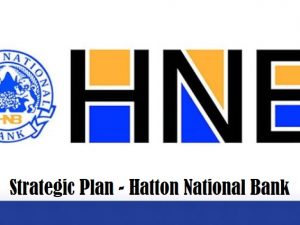| Table of Contents |
Executive Summary
1.0 Introduction
2.0 Rising oil prices and current strategic position of the business
2.1 Operational cost related implications
2.2 Revenue model (demand) related implications
3.0 Implications to customers and suppliers
3.1 Implications to the suppliers and partners
3.2 Implications to the customers
4.0 High oil prices and alternative energy supplies in Sri Lanka
5.0 Higher oil prices and other potential threats for the business and economy
6.0 Conclusion
References
|
| Preview |
Executive Summary
The main objective of this board paper is to carry out an in depth analysis and evaluation about the present position of Hatton National Bank PLC (HNB) in a strategic and a competitive view point while assessing the influence of the rising crude oil prices over the operations and profitability of the company. The board paper would provide an overview about the present business strategy of HNB which is one of the largest commercial banks in Sri Lanka. An evaluation has been carried out with regard to the increase in global oil prices from a cost increase perspective as well as from a demand force perspective. A range of strategic tools such as Porter’s generic strategies, Bowman’s strategic clock, perceptual mapping etc. have been used to identify the firm’s current competitive strategy and strategic position.
The last sections of the paper is focused on identifying viable and sustainable alternative energy sources that could be utilized by HNB to face the volatile oil prices in the global market. It was identified that solar power is the best alternative to the company which was further justified using the triple bottom line model. The paper also overlooked the 2nd and 3rd order impact related to the strategic issues identified and explained the influence of rising oil prices over the Sri Lankan economy.
1.0 Introduction
Growing trend in the global oil prices could be identified as one of the key challenges faced by various industries around the world given the significant direct influence it has on the overall operational cost base and hence the demand force. It is expected that with the current rising oil prices, a crude oil barrel will cross $ 100 point towards the end of FY2018 (The Guardian, 2018). This growth in oil prices could be passed on to few different reasons including the re-imposition of sanctions by the USA against Iran. In addition the present economic crisis experienced by Venezuela could be also be identified as a key reason for the above identified rising trend in global oil prices. The inflation rate of Venezuela has reached over 50000% and is now passing a hyperinflationary situation. The strategy to postpone the floating 5% of shares in Armco could also be identified as a contributing factor towards the growth in the global oil prices. In this context, this report will mainly look at how such a rising trend in global oil prices affect the present business model of Hatton National Bank PLC.
Hatton National Bank PLC (HNB) could be identified as a giant in the commercial banking industry in Sri Lanka with a history of over 130 years. HNB is currently a listed company in Colombo Stock Exchange and has been able to successfully secure a reputation for a responsible financial institution in the country. The product portfolio of HNB covers a wide variety including corporate banking, retail banking, treasury, SME financing, international banking and project financing. HNB Singithi, HNB Grameen, HNB teen, HNB wally- e, HNB pathum wimana, HNB you, HNB privilege, HNB Future + and HNB pay fast could be identified to be among the most popular products under the overall product portfolio of the company. By the end of FY2016/17, the bank reported a consolidated profit (before tax) of Rs. 22.5 billion with an asset base of Rs. 901 billion. HNB also has a string network around the country with over 251 branches and 485 ATMs.
Before looking at the influence of the growth in global oil prices to HNB, it would be appropriate to get an understanding about the present business strategy and the value definition of the bank. As explained by Porter (1996), a strategy is devoted to being differentiated through taking the most productive decisions and compromises to develop an optimum value creating mechanism to the target customer base. Present business strategy of HNB is mainly aimed at being the game changer in the Sri Lankan banking industry and is thus dependent on the processes, technology and the skills of the employees. In order to achieve this ultimate goal, the bank needs to maximise customer service quality by enhancing the product portfolio and the services offered to the customers while ensuring customer satisfaction and convenience. As per Thompson et al (2014), HNB`s current business strategy reflect the characteristics of a best cost strategy which aims at delivering a higher quality product at affordable prices to the customers. The mission of HNB is to syndicate technology, entrepreneurial spirit and people empowerment to achieve the overall goals of the stakeholders.
|





